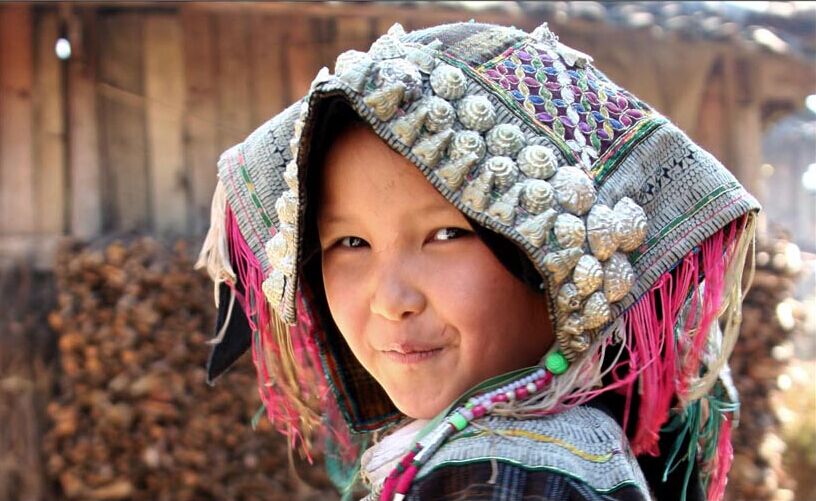

In the thick forest of southwest China's Yunnan Province, a group of people lived a totally isolated life until they were discovered and brought into the outside world five decades ago. The Kucong people have ended their nomadic life and have settled. What is their life like today? Here's Liu Yan with their story.
Reporter:
With a population of 30,000, the Kucong people belong to the Lahu ethnic group in southwest China's Yunnan Province. They used to survive by hunting in the Yilao Mountain area about 2,000 meters above sea level. They ate fruit and wore clothing made from animal skin, bark and spider web. In order to cope with the extreme living environment, the Kucong people shared every little food they had and lived in primitive packs. However, they still didn't have enough to eat and clothe themselves.
They were discovered in the summer of 1956. Several years later, with the help of the local government, they finally came out of the mountains and lived a settled life. Relying on farming, they still struggled because of the harsh natural environment.
In 2005, a newspaper article caught the attention of Chinese Premier Wen Jiabao. The article was about the poor living conditions of the Kucong people. Wen Jiabao wrote instructions the same day he read the article and ordered proper handling of the issue according to relevant policies to support the development of ethnic minority people.
Thirteen-year-old Xu Lianfen recalls that her life started to change for the better when she was ten years old.
Xu Lianfen: "My father died when I was 2. My mother remarried the next year."
Journalist: What was your old home like?
Xu Lianfen: "The house was bad. There was no road, no electricity. It was dangerous because of frequently landslides."
Journalist: "What was it like inside the room?"
Xu Lianfen: "There was no floor, no television. There was a shaky bed and the roof leaked whenever it rained."
The little girl now lives in an apartment building built by the local government in 2007. Eight kilometers from the county town, the apartments are home to 220 Kucong families.
Journalist: "How do you feel at school?"
Xu Lianfen: "Very good. I'm very happy at school."
Journalist: "You are a second grader now. Do you feel pressure in your study?"
Xu Lianfen: "A little. I didn't lay a good foundation in my former school so I have to study hard."
Journalist: "What do you want to do when you grow up?"
Xu Lianfen: "I want to go to Beijing and say hello to Premier Wen."
Journalist: "Do you miss him?"
Xu Lianren: "Yes. I miss him very much because he has given me great help. He gave me a lovely home."
Zhang Yan is a literature and language teacher in a junior high school in the county town. Her hometown is a small village 70 kilometers away. She was the first senior high school student of the Kucong group and the first one to attend college. Thanks to the financial support from the local government and the villagers, she was able to finish her education.
"It was a tradition that the Kucongs didn't send girls to school. While I was studying, 20 years ago, there were only a few girls who went to school. School drop out rate was extremely high."
On average, ten years ago a Kucong received less than four years of education. It was virtually unheard of for a girl to go to school. Zhang Yan recalls that only three girls studied in junior high school in 1989. She believes the situation has greatly improved.
"I've worked for 12 years now and I've seen a lot of changes for the Kucongs. In our village, many girls have entered college. Most of the children are able to finish their nine year compulsory education. I hope that more children can continue with further education to enable them to fulfill their lifetime dreams."
The central government has attached great importance to the development of the Kucongs. The Yunnan provincial government drafted a five year plan in 2006 in an effort to relieve the Kucongs from poverty. More than 200 million yuan, or about 15 million US dollars, will be invested into the education sector in the five years. In addition, the province has allocated an additional 120 million yuan to build nine settlements which have provided accommodation for 400 Kucong families. Further investment is continuing to pour in for the development of basic infrastructure, education and health sectors.
You will only receive emails that you permitted upon submission and your email address will never be shared with any third parties without your express permission.
